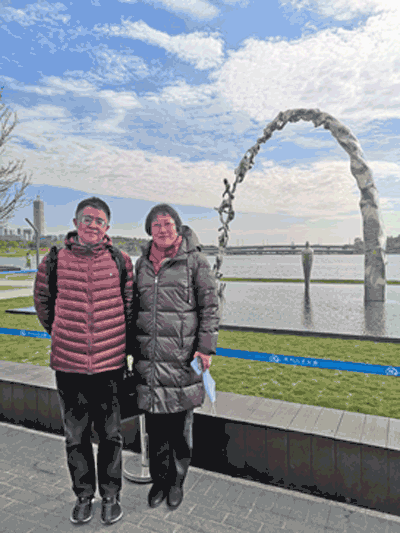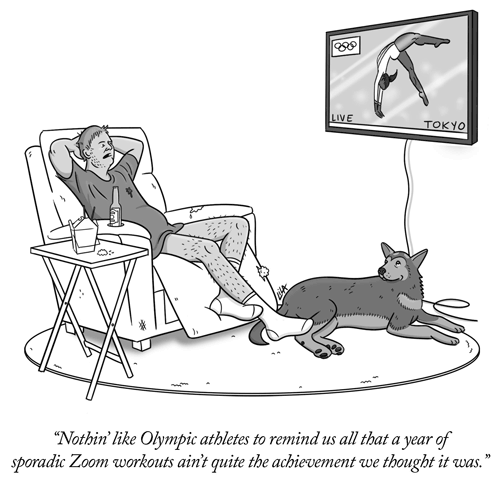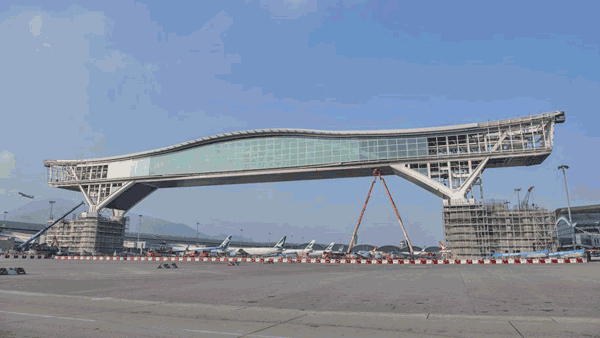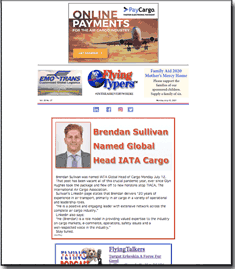|
We received news that at the United Nations Commission on International
Trade Law (UNCITRAL) 54th Session, FIATA welcomed and supported the note
produced by the UNCITRAL Secretariat on the preparatory work towards the
development of a new international instrument on negotiable multimodal
transport documents, and its crucial findings.
Accelerating Recovery
FIATA has been closely following the work
of the United National UNCITRAL Secretariat on this, following the Government
of the People’s Republic of China’s proposal during the UNCITRAL
52nd session, and considers this initiative to be ever more pressing in
the context of the need for economic recovery today.
FIATA continues to support the work of UNCITRAL
and to offer its expertise in relation to the development of a new international
instrument on multimodal negotiable transport documents, which would provide
legal certainty, strengthen the widespread international recognition of
negotiable multimodal transport documents such as the FIATA Multimodal
Transport Bill of Lading (FBL), and facilitate necessary acceptance by
banks for trade financing.
Even More Enlightening
In the meantime we learn, FIATA, through
its institutes and bodies, continues to work on the promotion of multimodal
transport documents and the FBL with the collaboration of relevant stakeholder
organizations, in order to facilitate strengthened use of multimodal transportation
for the benefit of international trade.
Digging Deeper
This is clearly a step that could bear consequences
in international trade, depending on the speed at which these implementations
take place.
It seemed obvious as the only FIATA Fellow
in this world today (inducted in 2016) to resort to our FIATA connections
to delve a bit deeper into this issue and perhaps expand the line of the
horizon.
We were put in contact with Dr. Yang Yuntao,
who deals with these issues in his position as Chairman of the Advisory
Body Legal Matters (ABLM) of FIATA.
The Land of Long Spring
Dr. Yang Yuntao was born in Changchun, in
Northeast China. Changchun means “Long Spring” in Chinese.
Just as its name indicates, this beautiful
city is always covered in green, except in winter’s snowy days.
Changchun is the birthplace of the first
automobile factory in China, as well as the first film studio in the country
(Changying). Some called Changchun the Detroit of China.
Teach Your Children Well
The Jilin University (JLU) of Changchung
has a very large campus. Dr. Yang Yuntao’s parents were both teachers
at JLU, so he was actually born within the campus in the 1960s.
It was not surprising that young Yang Yuntao
worked hard to achieve his outstanding academic performance.
The law was his calling and the Faculty
of International Law in the Law School of JLU opened its doors to him
in 1984.
Four years later, after graduation, Yang
Yuntao was employed by the National Foreign Trade Transportation Corporation,
later known as “Sinotrans”, the largest freight forwarding
company in China, thus starting his career from the most fundamental work,
drafting B/Ls, making Customs declarations, etc. which is a common experience
for many successful personalities in the world of shipping and transportation.
Sinotrans Success Lifts All Ships
Dr. Yang Yuntao is a hardworking, no-nonsense
professional, it is no wonder his career in Sinotrans developed alongside
the growth of the company’s international affairs. Our man became
the General Manager of the Legal Department and then Vice-President and
General Counsel.
During his 20 years serving as the head
of legal affairs in Sinotrans, Dr. Yang lead the legal work on various
milestone events, such as the initial public offering, litigation and
arbitration cases, both at home and abroad, bankruptcy reorganization
of listed shipping subsidiaries, etc.
The Natural
Dr. Yang Yuntao has a simple and natural
criterion for being a General Counsel, i.e. serving the company in a practical
and down-to-earth manner, so that the leadership and his business colleagues
can recognize and confirm the company’s values.
Top Of His Game
 In 2020 Dr. Yang Yuntao was chosen to be
Deputy General Manager and General Counsel of China Merchants Energy Shipping
Co. Ltd, a world-leading shipping enterprise operating the world's largest
VLCC (refers to large size oil tanker) and VLOC (large tanker that carries
iron ore) fleets, as well as being the largest product oil tanker fleet
in the Far East. This, in addition to being Executive Director and Vice
President of the China Maritime Law Association, Vice Chairman of Commercial
Law and Practice Committee, ICC China and the Supporting Member of the
London Maritime Arbitrators Association (LMAA), in his capacity as arbitrator.
In 2020 Dr. Yang Yuntao was chosen to be
Deputy General Manager and General Counsel of China Merchants Energy Shipping
Co. Ltd, a world-leading shipping enterprise operating the world's largest
VLCC (refers to large size oil tanker) and VLOC (large tanker that carries
iron ore) fleets, as well as being the largest product oil tanker fleet
in the Far East. This, in addition to being Executive Director and Vice
President of the China Maritime Law Association, Vice Chairman of Commercial
Law and Practice Committee, ICC China and the Supporting Member of the
London Maritime Arbitrators Association (LMAA), in his capacity as arbitrator.
In the interest of time, rather than completeness
here, let us end this long list of titles and publications by just saying
that in 1991, Dr. Yang Yuntao married Dr. Ding Ding, (pictured here)
who is a well-noted Professor of Law in China.
Constantly Engaged@FIATA
In 1999 Dr. Yang Yuntao attended the annual
FIATA World Congress for the first time. Since then his contribution to
FIATA has been constant. All of FIATA’s publications were translated
into Chinese and the information exchange with FIATA was notably active
and excellent. Thanks to its valuable collaboration with Dr. Yang Yuntao,
FIATA has probably been the best-informed association in Chinese affairs
in the international transport industry for years.
The establishment of the Standard Trading
Terms of Freight Forwarding for and on behalf of CIFA (FIATA’s association
member in China) was made possible by the unique collaboration between
FIATA and CIFA.
Enlightening Good Times
Marco Sorgetti told us that “the years
[he] had spent working with Yang Yuntao, Angela Song and President Zhao
Huxiang had been the best in his career at FIATA and this was surely due
to their intelligent, patient and collaborative approach.”
FIATA Membership Benefit
In recent times FIATA's Advisory Body on
Legal Matters (ABLM) has produced a milestone publication to assist freight
forwarders in their contracting activity. Dr. Yang Yuntao drove the process
required to complete such an instrument, intended to assist FIATA Members
in their daily business.
Landmark Best Practices Guide
Here is some text:
“For freight forwarders, the contracting
process is crucial, not just to mark the start of a new business relationship,
but as a crucial method by which to manage one’s risk and avoid
undue liability exposure. (Abridged) This best practice guide has been
developed by FIATA’s Advisory Body on Legal Matters to follow the
journey of the contracting process, with the aim of helping freight forwarders
develop a practical contract management protocol for use in their daily
business.”
Of course the disclaimer also states:
“It”, (the guide) “should
not be construed as legal advice.”
Up Close & Personal
FT: Dear
Dr. Yang Yuntao, we are thrilled to talk to you today. We are very grateful
for your time. Despite the difficulties in the last eighteen months, your
institution has been quite active, with noticeable results.
YY: Yes,
it has been challenging, but I am happy to see these results for FIATA.
Our members had insisted on receiving technical guidance from FIATA.
The issue for the ABLM was to write practical
advice without compromising the speciality of the legal advice, which
cannot be generalized too much, if it has to remain effective. Obviously
each contract and each condition have a special character, but I think
we have been able to provide good guidance as a summary of our experiences,
without compromising on the level of the specialized technical advice
that must come from the lawyer.
Thanks to the Presidency, the Extended Board
and the Secretariat of FIATA, especially Andrea, Angela and ABLM colleagues’
contributions.
FT: Very
clear, Dr. Yang, thank you. This is a discussion we have heard more than
once. The ABLM has also apparently been active in other areas. You are
working very closely with the Advisory Body of Information Technology
(ABIT) on the digitization of the FIATA Bill of Lading (FBL), correct?
YY: Right,
the former ABLM Chairman Richard Gluck and many other ABLM experts are
working closely with ABIT on the eFBL project. I think we may no longer
keep our head out of the water, if we do not launch a serious digitization
programme. All the requirements are there, but I understand the hesitation.
Many companies are afraid of making the
wrong move and others perhaps feel their acquired competitive advantage
is at stake. The digitalization of transport documents is a rugged path,
which we all know we would achieve some day, but reaching the goal requires
entrepreneurship and the investment of pioneers; collaboration and standardization
among all stakeholders, such as sea, air and land carriers, freight forwarders/3PLs,
ports and terminals, authorities, etc.
FIATA is exploring a feasible way to provide
member forwarders with a convenient and secure digital solution to use
the FBL. This is the reason why the ABLM has been following the work developed
by the Group IV of the UNCITRAL closely since when Richard Gluck was the
ABLM Chair.
FT: We
heard from external sources of a large conference organized in China,
with more than 46,000 participants, this is something that also came forward
from FIATA as we stated earlier. We heard interesting developments regarding
the Model Law on Electronic Transferable Records (MLETR). Would you like
to make comments on this point?
YY: Yes,
the conference was organized to celebrate the 1980 Vienna Convention on
the International Sale of Goods (CISG). I believe this is the conference
you have in mind. I was asked to give a speech and I had the opportunity
to meet Luca Castellani of the UN and talk to him about this development.
In my view the MLETR is an interesting instrument that can be useful for
countries that wish to work in this direction. Chinese companies are looking
at this opportunity, although our impression is just in the very beginning
of this study. Anyway Luca Castellani was very helpful with relevant material,
which I received with thanks.
FT: You
seem to be in good hands, Dr. Yang, in contact with experienced individuals,
who have been working on this idea for considerable time. We believe FIATA
has been involved in this work for a number of years, correct?
YY: Yes,
this has been on FIATA’s radar for a while. I am aware that these
developments are crucial, but in my speech I am also lamenting a relative
tardiness of international trade to adapt to new paradigms. This also
shows other challenges that the swiftness of digital transactions can
produce. It is piling up and a new awareness must come.
FT: You
have been a part of the industry for more than three decades, with almost
20 years serving as General Counsel for firstly Sinotrans & CSC, the
largest freight forwarding enterprise in China, and then China Merchants
Energy Shipping, a leading shipping enterprise. How do you see the role
of corporate counsel in a freight forwarding and transport company?
YY: Thank
you for this excellent question. In my view, a corporate counsel should
assume several main functions for the company. The first one is compliance
and management of legal risks. Our industry is highly internationalized,
our business goes beyond borders and the embrace of jurisdictions is worldwide.
Freight forwarders are confronted with complex and dynamic challenges
in complying with distinctive legal requirements in different jurisdictions,
especially nowadays when compliance requirements for the transport industry
are stricter and stricter, with regard to safety and security, export
control and sanction, as well as data protection. A corporate counsel
should be able to assist the company in navigating through these challenges.
The second task of the corporate counsel
is to facilitate the company’s development with his or her expertise
in law. Apart from daily operations, the freight forwarding and transport
companies have increasing demand in other areas, such as M&A, IPO,
overseas investment and debt restructuring. These may go beyond the original
scope of knowledge for the corporate counsel, who should however be able
to quickly adapt to such new demands and work closely with external lawyers.
The corporate counsel is the core link to convey
the company’s interest to external lawyers and therefore should
take full advantage of the lawyer’s expertise for the purpose of
maximizing the company’s best interest. The general counsel serves
as leader of the company’s legal team; his/her task is to set up
a solid legal foundation for the company. Therefore, ensuring contract
management and building a professional legal team are critical for the
general counsel.
FT: Thank
you for sharing your experience, Dr. Yang Yuntao. What kind of abilities
do you think are most important in being a corporate counsel?
YY: The
first and most fundamental one for sure is knowledge in law. The second
is, as I mentioned, the ability to quickly absorb the evolving information
and adapt it to the different demands originated from the company’s
own development or from new legislation. The third is the ability to communicate
efficiently and cooperate smoothly with the company’s business sector,
as the business departments may sometimes consider compliance measures
burdensome and abiding by the process challenging. The last one I would
like to emphasize is team work. I have always been very proud to work
with my colleagues, both in Sinotrans and in China Merchants Shipping,
their expertise in specific legal areas and dedication to the career inspire
me to keep moving forward.
FT: What
is your take in the new market that we have experienced after the problems
with the pandemic in 2020?
YY: Fortunately
for China, we have been able to contain the COVID-19 pandemic relatively
soon and this has prevented a disaster of historical proportions. If the
pandemic went rapidly loose in a country that has a population of 1.4
billion, the consequences could have been very serious for the entire
planet.
However, the shock in logistics was strong
and sudden, first in China and then internationally. The global supply
chain was faced with a series of challenges this year. The pandemic, the
obstruction of Suez Canal and the congestion of Yantian Port all challenged
the resilience of supply chain. We have seen blockage in sea freight,
as well as quick development of air and rail freight. Freight forwarders
should play their role in constructing a resilient and secure global supply
chain, and provide customers with contingent logistics solutions in extreme
circumstances.
FIATA is also dedicated to provide guidance to
its Members and I highly appreciate the work done by my colleagues in
the Multimodal Transport Institute and WG Sea during such a special phase.
FT: Dr.
Yang Yuntao, Marco Sorgetti told us that you are a great soul: we can
only subscribe to this statement. Thank for your work in FIATA and, today,
for the time you spent with us.
Geoffrey
|







